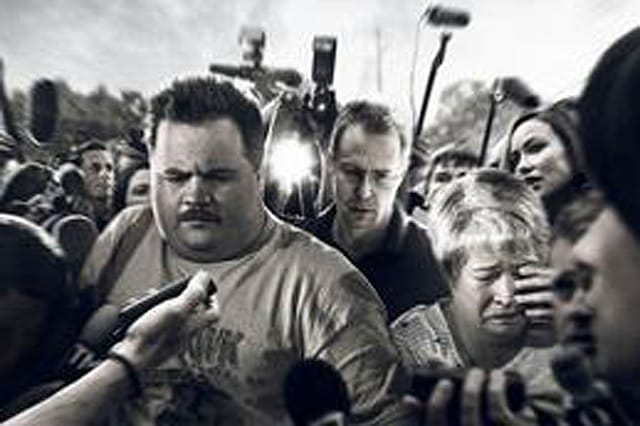Richard Jewell Movie Review

This movie is a deeply empathetic portrait of an individual, at the same time as it is a perceptive and bitter look at a society that judges people by their outer appearances, and the cliches that are associated with that veneer. Richard Jewell is an overweight, almost obese, white man who is very sensitive about the way people view him.
His work profile is also not in his favour. He is a security guard who hasn’t risen very high up the hierarchy of his profession; again, possibly because of the way he looks. When he is diligent about his job, his employers interpret his behaviour as excessive. At a college he works at, the head of the institution sacks him for entering the rooms of students to check their drinking and drug habits. When Richard argues that he is a very thorough person who has deep respect for law enforcement, and who believes that an organised society ought to be based on its principles, he is looked at with scarcely concealed derision.
Had he appeared the type of security man that we come to expect from movies and television, he may have been taken seriously. But he is a large and funny looking man who waddles, and who breathes heavily, and who asks very obvious questions, and you can see from the eyes and expressions of people who react to him, that they don’t want to spend too much time with him.
His position as a hero - when he did become one during the Atlanta Olympics in 1996, after he discovered a bomb at the Centennial Park and alerted Police Officers, saving many lives - would be impossible to bear for any length of time. Hyped up agencies of law enforcement like the FBI, officers who exist in the reflected glory of continuous movie and TV images of themselves, in which their equivalent characters are played by handsome stars, would find someone like Richard Jewell revolting.
In ‘Richard Jewell’ the 89 year old director, Clint Eastwood, has nailed the pride and the prejudices of American society, and looked at it through the context and prism of its media distortions. Richard Jewell (Paul Walter Hauser) became a hero for a short time, and then a villain, when he was suddenly transformed into the chief suspect in the Centennial Park bombing.
Even the bare bones of a credible case against him did not exist. He was a suspect on negative imagery alone - the idea that he fitted a profile of a lonely and frustrated man living with his mother; that he was desirous, perhaps desperate, for publicity. Indeed, such was the cliche of their own manufactured portrait of the man, that Richard was never arrested by the FBI, only searched and questioned.
The film makes the point that Richard could only be guilty if you viewed him through a kaleidoscope. The outer spectrum shows an alert security guard doing his job. The inner one shows a powerless FBI without a suspect in custody. An overweight security guard, contrary to every image of a sentinel, takes their place, and when this image is relayed back to the FBI through the prism of the media that controls them, Richard becomes a hero.
Their riposte is to invent a likely suspect, Richard Jewell himself. It is a classic political diversion of a law enforcement agency that is buying time for itself.
But the price paid for the deflection was the human suffering of Richard and his beloved mother, ‘Bobi' (Kathy Bates). The script allows this understanding to dawn on you gradually, and when you have processed the information in your mind, the emotional elements of the film are put into play. The narrative traverses the tunnel from documentation of an event in 1996, to the full realisation of the human vulnerability of the three central characters in the drama - Richard, his mother, and their lawyer, Watson Bryant (Sam Rockwell), who always believed that Richard had been 'railroaded’ by the system.
Eastwood is a gifted actors’ director, and the performances are exquisite; in a film that grows on you.